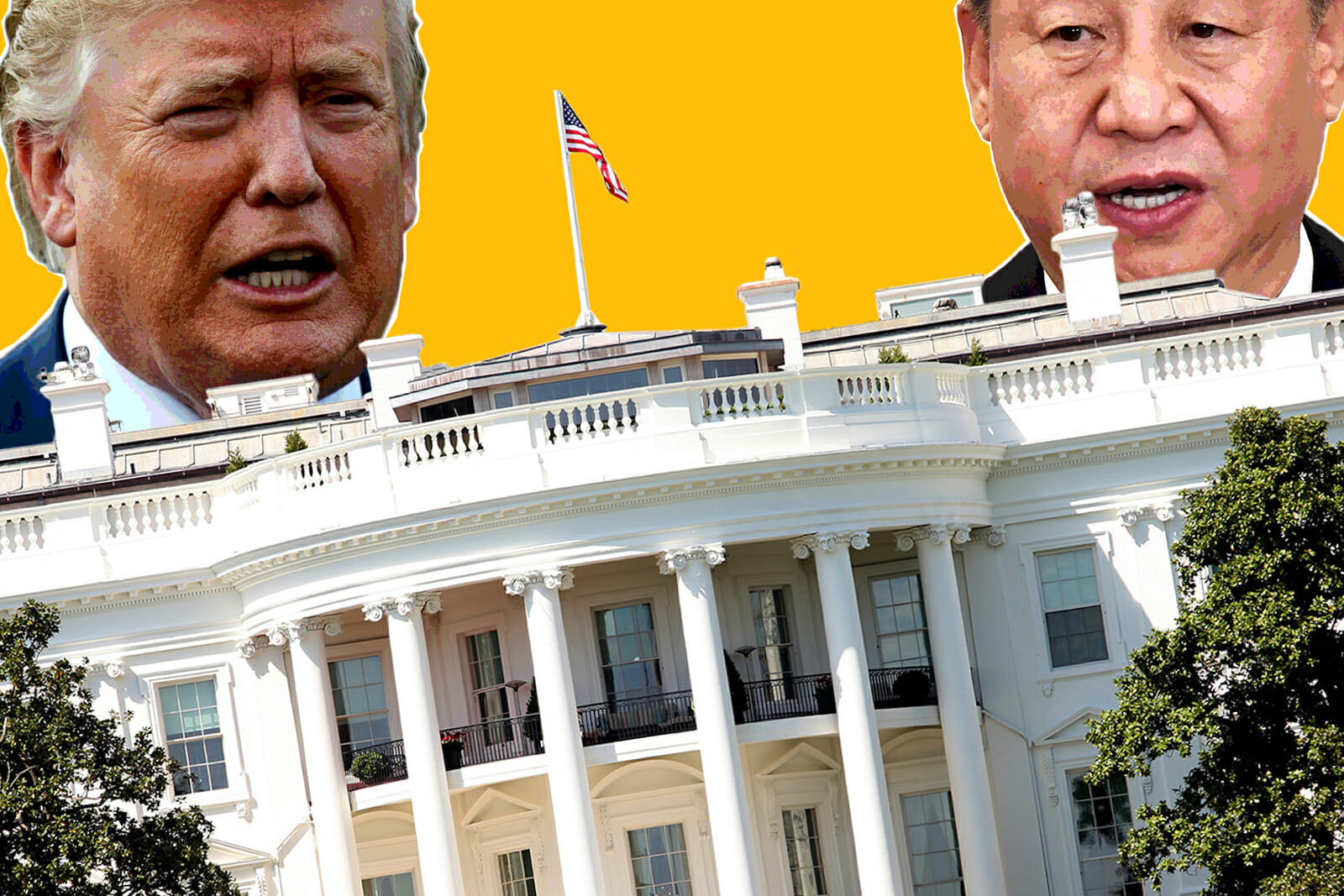
Trump Emulates Xi as he Weakens American Democracy
While President Donald Trump and President Xi Jinping seem like polar opposites, their actions over the years, from consolidating power to silencing criticism, clearly show their similarities. However, individual leader’s personalities have varied impacts depending on the system of government that they work under. Even as Trump continuously defies U.S. foreign policy norms and engages in “very friendly” relations with other strongmen, such as Xi, Rodrigo Duterte, Vladimir Putin, and Kim Jong-Un, he has been unable to secure the same control as these leaders due to democratic checks on presidential power. However, attempting to emulate his fellow strongmen, Trump has maneuvered to eradicate well-established restrictions at every turn, placing American democracy at risk. With the Senate bowing to his will and devout Trump followers placed in key positions across the government, the sanctity of American democracy is being tested like never before.
Trump and Xi have made it clear they will not stand for any negative press surrounding them or their decisions. Trump highlighted his distaste for criticism when he revoked press passes for the vast majority of reporters that wrote negatively about him. Even now, after losing a court case which mandated certain reporters be granted access again, the administration can still revoke credentials at any time. Trump has also weakened the media further by continuously emphasizing his fake news narrative, successfully convincing thousands of Americans that they can’t trust the vast majority of news outlets.
More recently, Trump’s intolerance of any form of criticism manifested when the State Department denied Jessikka Aro, an honored journalist known for standing up to Kremlin propaganda, an award she had already been told she won after finding her critiques of Trump on social media. A Washington Post writer commented these moves “send a message to future would-be critics that raising concerns about Trump…comes at a cost.” Similarly, Xi jailed a former senior party member, Ren Zhiqiang, for 18 years after he allegedly wrote an essay criticizing the Chinese leader. Causing a CNN writer to remark, “this heavy sentence appears designed to send a message…either fall in line or face the consequences.”
Further dismantling opposition, Xi and Trump dealt with protests in a similar authoritarian way. During the 2019 Hong Kong protests, citizens of the island took to the streets in a pro-democracy march only to be met with police brutality and violence encouraged by Xi. He later stated that “anyone who attempts to split any region from China will perish, with their bodies smashed and bones ground to powder.” Trump also uses aggressive language to encourage violence during ongoing Black Lives Matter rallies with tweets like “when the looting starts, the shooting starts.” More than this, both leaders are willing to separate children from their parents. Xi detained over a million Uyghurs, orphaning thousands of children, while Trump took children away from their parents at the border to deter illegal immigration.
Furthermore, Trump and Xi demonstrate a desire to stay in power by any means necessary. In 2013, Xi came into power and immediately ran an ‘anti-corruption’ campaign that saw more than one million party members punished. While originally boosting his popularity, this was little more than a purge of political rivals. Echoing this, Trump fired every single politically appointed ambassador “without exceptions” upon his Inauguration Day in 2017. The beginning of Xi’s second term saw him eliminate China’s two-term limit for presidents that had been part of China’s constitution since the 1990s. In response to this, Trump exclaimed, “president for life…I think it’s great! Maybe we’ll have to give that a shot someday.”
In an effort to prolong his presidency, Trump, during his impeachment trial, repeatedly fired those investigating him, refused to let witnesses speak, and removed people who testified against him from their positions. Now, after losing the presidential election, Trump, in a desperate attempt to cling to power, has filed numerous court cases falsely claiming voter fraud, leveraged the power of the White House when calling on state and local officials to rescind certification of election results, and pressed election officials to exclude legal ballots.
Despite Trump and Xi continuously mirroring the others’ antics, there are still remarkable differences in their respective countries. Under Xi’s rule, high-tech surveillance systems, including security cameras with facial recognition software, location tracking, and Internet usage monitoring, have been set up so every citizen is subjected to Big Brother-like scrutiny. A “Great Firewall” has also been built to prevent Chinese citizens from being exposed to any criticism of Xi or the government.
In America, however, these mechanisms of social control are far weaker due to resistance from tech companies and the general public – coincidentally why contact tracing has been so difficult during the COVID-19 pandemic that Trump continues to underplay. Recently, Trump attempted to ban TikTok and WeChat from U.S. app stores using executive orders, however, both were blocked by divisions of the judicial branch, highlighting their ability to check the president’s power. While the legislative branch also has this power, the GOP majority Senate, led by Mitch McConnell, consistently bends over backward for Trump’s benefit, even if that means directly contradicting their precedent set just four years prior. Now, Trump has packed the Supreme Court, creating a supermajority of 6-3, effectively biasing one of the biggest hindrances on his power by stacking it with people who, like the Senate, will kowtow to his wants.
Trump is nowhere near the first U.S. president to strive for more power as many others have tried with varying degrees of success, however, no American president has achieved a power grab anywhere close to Xi’s. As the end of Trump’s presidency nears, it is clear how vital democracies are for reigning in power-hungry personalities, while China demonstrates the importance of keeping the sanctity of American democracy alive.
While both presidents have systematically overcome checks on their power, as of now America is still very much a democracy and hopes for positive change are high with the Biden administration poised to take office. But this is not cause for celebration, as Steven Levitsky and Daniel Ziblatt write, “we should not take democracy for granted. There is nothing intrinsic in American culture that immunizes us against its breakdown.”
It is on the American people to uphold democratic values, abide by democratic norms, and demand whoever is in office exercises self-restraint in the face of incredible power. As these authors assert, “democracy’s assassins use the very institutions of democracy – gradually, subtly, and even legally – to kill it.” That is what we saw with Xi using a vote to eliminate term limits and what we are seeing with Trump’s fraudulent claims of a rigged election. Especially with all the doubt cast on this election, now more than ever, it is imperative America remains a strong democracy and Trump is forced to admit defeat. Otherwise the similarities between these leaders won’t be limited to their personalities, it will be their countries as well.
